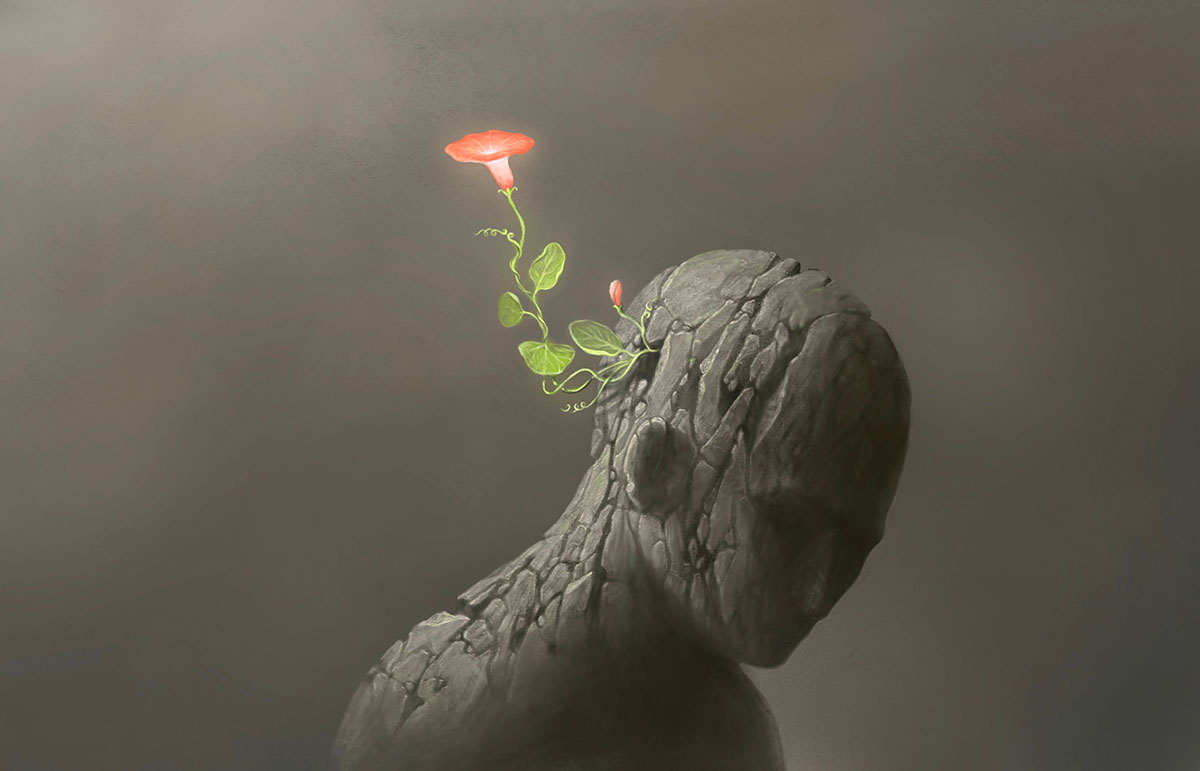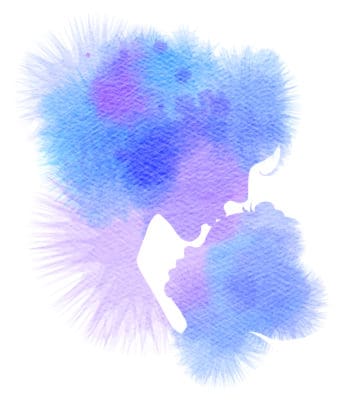Depression can make the most minor tasks, such as cooking dinner, feel impossible. One may lose their appetite and wonder, “what’s the point?” For many people with depression, the chronic condition can be life-threatening, especially if one experiences suicidal ideation. Depression can trick one into thinking it’s all in their head, and it actually is. In addition to neurochemical imbalances, neuroimaging studies reveal that people with depression have structural and functional differences in their brains as compared to normal individuals. This tells us depression is a medical and psychiatric condition. Therefore, there is a medical solution.
The typical standard of care models begins with a combination of antidepressant medication and psychotherapy in the treatment of depression. However, traditional antidepressants such as selective serotonin reuptake inhibitors, or SSRIs, do not work for everyone, and when they do work, they can take weeks to kick in. They also come with side effects that some find unpleasant, such as weight gain, hormonal changes, feelings of apathy, and loss of libido. Recently, ketamine, a dissociative anesthetic with psychedelic properties, has made a name for itself as a novel treatment for depression.
What Is Depression, And How Is It Usually Treated?
According to the National Institute of Mental Health, an estimated 17.3 million adults, or 7.1% of Americans in the United have had at least one major depressive episode based on DSM-5 criteria. A depressive episode is defined as a period of at least two weeks when a person experienced a depressed mood or loss of interest or pleasure in daily activities and had a majority of specified symptoms, such as problems with sleep, eating, energy, concentration, or self-worth.
For many people, depression lasts longer than two weeks. It is considered a chronic condition, and research shows that the likelihood of recurrence increases with the number of episodes. It’s believed that imbalances in serotonin, combined with environmental factors, cause depression. The standard treatment method uses antidepressants such as SSRIs, SNRIs (serotonin-norepinephrine reuptake inhibitors), and tricyclic antidepressants in conjunction with psychotherapy. They work by increasing the availability of serotonin and preventing the reuptake of serotonin and norepinephrine. Research shows that they can be effective — just not for everyone. About 20 to 40 out of 100 people who took a placebo noticed an improvement in their symptoms within six to eight weeks. About 40 to 60 out of 100 people who took an antidepressant noticed an improvement in their symptoms within six to eight weeks. Therefore, antidepressants relieve depression symptoms in about an extra 20 out of 100 people.
How Is Ketamine Used To Treat Depression?
In March of 2019, the FDA approved ketamine, in the form of the nasal spray Spravato (esketamine), for treatment-resistant depression. The ketamine is absorbed through the membranes in the nose. Each nasal spray device delivers 28 mg of esketamine. Ketamine is currently the only FDA-approved psychedelic medicine.
Treatment-resistant depression (TRD) is defined as depression that has failed to respond to trials or two or more antidepressants. A 2019 study found that intranasal esketamine significantly reduced depression symptoms in TRD.
Ketamine is a mixture of two mirror-image molecules, “R” and “S” ketamine. The FDA-approved nasal spray, Spravato (esketamine), only contains the “S” molecule. In the case of Spravato, the decision to use solely esketamine simply reflects the fact that racemic ketamine is a generic medicine and cannot be patented or profited on. By isolating the “S” molecule, Janssen Pharmaceuticals, a subsidiary of Johnson & Johnson, the company behind Spravato, branded and monetized their product. Spravato can cost from $590 to $885 per treatment session.
One advantage to FDA clearance is insurance companies can reimburse ketamine treatments, making them more widely accessible to populations in need. While insurance companies sometimes cover Spravato, they don’t cover the cost of off-label ketamine treatment. This creates financial barriers that prevent people with depression from receiving life-saving medicine. Increased costs of treatment may dissuade individuals from obtaining it through the medical system, and may instead seek it through illicit means. Spravato does offer resources to help determine if one’s insurance covers it, as well as savings programs and coupons.
“R” ketamine is also called arketamine. A 2017 study concluded that because there are no direct comparisons between S-ketamine, R-ketamine, and racemic ketamine as a psychedelic medicine for people with depression, it’s hard to make a call on which works best. There are rodent studies that suggest that R-ketamine actually shows greater potency and longer-lasting antidepressant effects. While more studies are needed to understand how ketamine works fully, evidence suggests that it exerts complex pharmacological actions, including inhibition of biogenic amine uptake, binding to opioid receptors, and inhibition of N-methyl D-aspartate (NMDA) receptors.
What About Off-label Options?
Ketamine (generic racemic ketamine) can be a more accessible and effective treatment option than Spravato. A 2017 study suggests that ketamine infusions administered intravenously one to three times per week are the quickest and most effective treatment for depression. if a doctor and patient decide that ketamine is the best option, they can go straight to ketamine infusions instead of trying other antidepressants first.
The study found ketamine suitable for treating both unipolar and bipolar depression, suicidal tendencies, and depressive patients also experiencing pain. It notes that while patients have safely undergone this treatment method for a year and a half, more research is needed regarding the safety of long-term ketamine infusions for depression.
Ketamine works more rapidly than typical antidepressants. While antidepressants such as SSRIs take weeks to build up in the system, a 2019 study found that ketamine provided a rapid antidepressant effect with a maximum efficacy reached 24 hours after the infusion. This is because ketamine impacts glutamate transmission as opposed to serotonin or norepinephrine. Because insurance companies don’t cover off-label uses, infusions can also be expensive, costing between $400 to $2,000 per treatment. Some doctors will work with compound pharmacies to make their patients off-label nasal spray. Ketamine can also be administered orally. Initial studies suggest that while oral ketamine can be more accessible and cost-effective and can help depression, it doesn’t work as well as infusions do.
Conclusion and Final Thoughts
Depression is a public health crisis, and traditional medicines such as SSRIs do not work for everyone. Ketamine for depression is a landmark discovery because it works quickly and efficiently. These rapid results are especially important for people with depression who are also experiencing suicidal thoughts.
While the FDA approval of Spravato is a historical win for psychedelic medicine, it’s important to remember that the pharmacology and method of intake used in their nasal spray was built with profit in mind. Research shows that infusions of generic racemic ketamine are the most effective treatment for depression. However, even that comes with accessibility and cost barriers.
Ketamine offers a much-needed beacon of hope for people with depression, but its healing possibilities will not be fully realized until it becomes more accessible and affordable.





